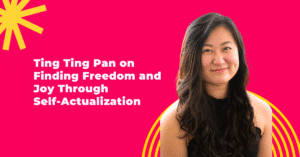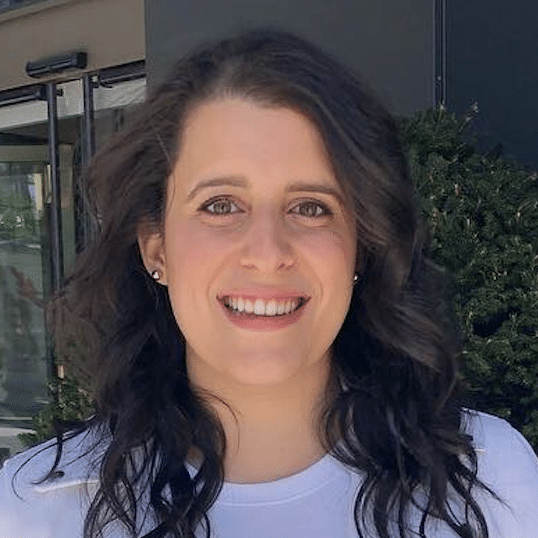AHF recently had the chance to sit down with Lama Al-Awawdeh, one of our amazing AHF fellows in the Winter 2021 Fellowship Circle. First, more about Lama!
Lama is a multi-hyphenated leader who is passionate about social justice and equity, and believes in the ripple effect of mentorship. She was also one of our amazing AHF fellows in the Winter 2021 Fellowship Circle cohort.
Based in Toronto, Lama currently works as a Strategy and Operations Consultant and Food Content Creator. Lama is passionate about travel, photography, and all things culinary – including her food blog,
Better With Every Bite (keep reading for mouthwatering photos!). Her love for food stems from her love for her Palestinian heritage and community.
She is an alumna of the University of British Columbia with a degree in Interdisciplinary Studies (Commerce, Economics, and Political Science) and holds a Certificate in Project Management from the University of Toronto.
What motivated you to apply for the AHF Fellowship Circle? What does AHF mean to you?
After spending the early years of my career and my undergraduate degree in Vancouver, I made the decision to move back to Toronto, six months before the start of the pandemic. I was excited for the next chapter in my life and couldn’t wait to build my professional network in the city — the pandemic had other plans for us all!
I had come across AHF on my LinkedIn feed and felt like I had found what I had been searching for – a network designed by and for women of colour, in business and tech. It’s rare to find a professional development program that authentically prioritizes BIWOC representation and voices. I looked forward to all the opportunities we had to engage with leaders, change-makers, speakers, and mentors, who understand our unique experiences first-hand. I’m grateful and honoured to have been part of AHF’s inaugural Fellowship Circle cohort and to have gained a supportive, genuine community.
Some of my favourite learnings included the sessions led by
Karlyn Percil-Mercieca (Reframing Imposter Syndrome Moments) and
Chivon John (Self-Care as a Form of Activism). Both sessions resonated with me as I took away the importance of understanding oneself, prioritizing ourselves and our purpose as women of colour, being unafraid to take up space and to advocate for ourselves.
“For me, AHF is about community. A community that actively cultivates an environment where we can bring our whole selves, engage in genuine conversations, learn from each other regardless of our career stage, and above all, be of full support to each other.”
I hope to continue paying it forward by advocating with and for BIPOC.
How do you invest in your own potential as a woman of colour?
Investing in my growth and potential is a constantly-evolving process. As a lifelong learner, I deeply value the “golden opportunities” in my day where I can challenge myself, learn something new, and build meaningful connections with others.
I see each day as a fresh start; a chance to learn humbly, to grow from mistakes, to continue to become a fuller version of myself, and to better understand myself and the world around me. These days look a bit different while working from home, but I continue to make time for self-reflection and to cultivate positive habits. Each day, I like to set aside time to read, stay informed, practice self-care, exercise, and pursue my creative passions. Throughout the month, I make an effort to connect with my mentors and attend lectures or classes to further enhance my personal and professional development.
“What I’ve found to be the most helpful throughout my journey was to focus on consistency, lean into my network of support, and take each day as it comes.”
What advice or tips do you have for a recent graduate who is just starting out in a new position?
Starting a new role out of undergrad is exciting, but it can also be a bit daunting. Whether you’re joining your new team in person or from home, those first few weeks are a key step in setting yourself up for success.
What I found helpful was to first try to understand your manager’s expectations, the company culture, and any best practices. I set up informal “coffee chats” or virtual meetings with members of my team. This is a good way to build a personal connection which can go a long way and is the perfect opportunity to learn from others. Make sure to have some questions prepared in advance but to also let the conversation flow naturally. It is also important to take notes so you can refer back to these as you progress!
I would also recommend setting goals for your personal and professional development. Take the time and the opportunities to listen and learn, show initiative, and ask questions. Staying present and enjoying each day is a good way to make the most of each opportunity that comes your way.
“Above all, be kind to yourself every step of the way and keep in mind that growth looks different for everybody and it’s not always a linear path.”
Remember that you deserve to be in the room. You’ve earned it.
What advice do you have for leaders and managers in creating the conditions for early-career BIWOC to thrive in their workplaces?
I believe that every leader can and should make a commitment to fostering an inclusive work environment for their team members. Part of that includes taking the time to listen and to truly understand the unique experiences of BIWOC. I encourage leaders and managers to be willing to learn from your diverse team members but make it a priority to also do your own learning by reading articles, research, books, and watching videos.
I would also recommend creating a team charter with shared values and engaging in genuine, judgment-free conversations with your team. I believe making mentorship opportunities available to early-career BIWOC is important as well as to actively invest in the professional development of your team members.
To me, being a good leader means showing up for the people that make up your team. Building a positive work culture is beneficial for everybody. It can lead to a more engaged team, lower turnover rates, and a more collaborative space where everybody can thrive.
What’s your first memory of your love for cooking? How did you decide to share your passion for food through Better With Every Bite?
My love for food truly stems from my love for community, family, and of course, my Palestinian heritage. Like most Indigenous peoples, our connection to our food is intertwined with our connection to our land – the ways in which we cultivate, harvest, prepare, gather, and celebrate.
Our food traditions and recipes have been passed down from generation to generation, accompanied with special stories and history. Food connects us and is a constant reminder of home.
My earliest years of life were filled with memories of my Teita’s kitchen, helping her cut out circles in the dough she prepared for Shish Barak – traditional Levantine lamb dumplings cooked in a garlicky yogurt sauce. As soon as my tiny hands could grasp anything, I wanted to help my grandmother. I fondly remember her patience and attention to detail, and how everyone loved to gather in my grandparents’ home to share these beautiful dishes and desserts together.
My Mama, who constantly inspires me, not only taught me many of those same recipes, but encouraged me to take risks and share my passion with everyone. Cooking and baking have always been forms of creative expression for me – opportunities to pass on traditions and to create new ones as well.
You can find photos of my cooking and baking over on my Instagram page,
Better With Every Bite. Stay tuned – website coming soon!

